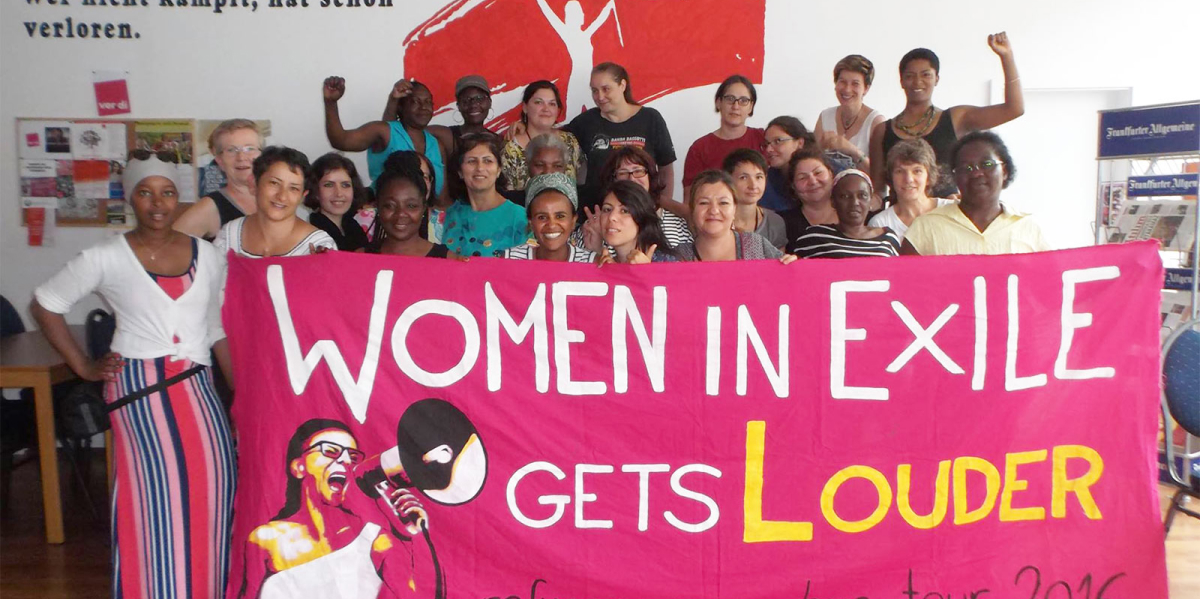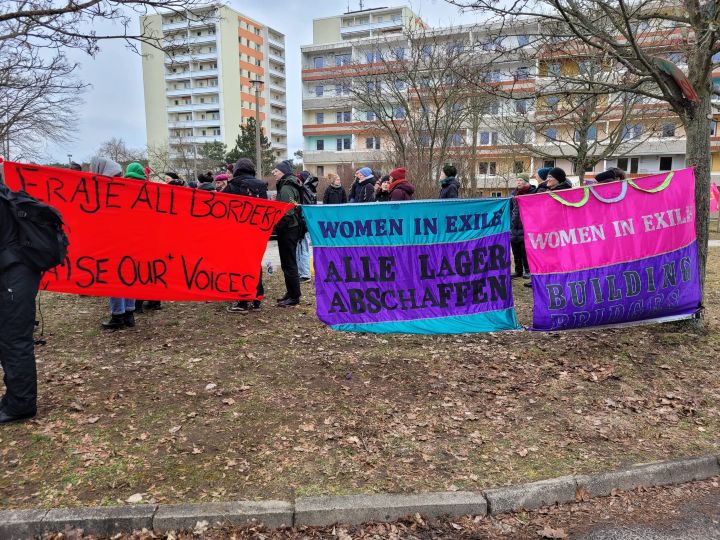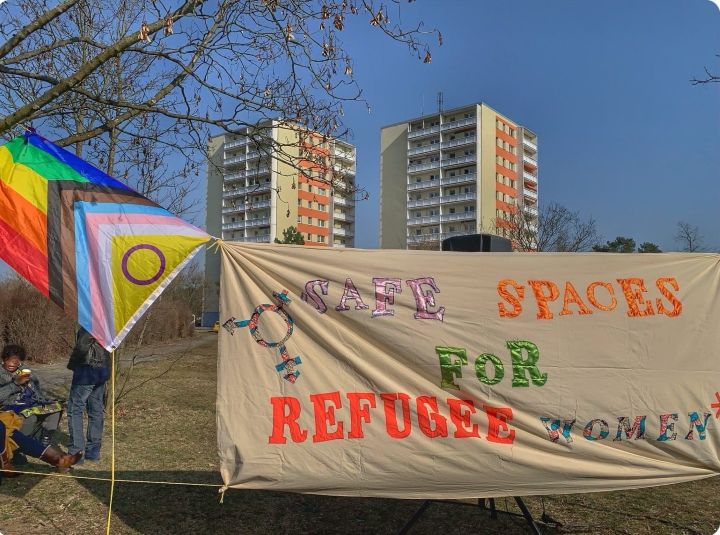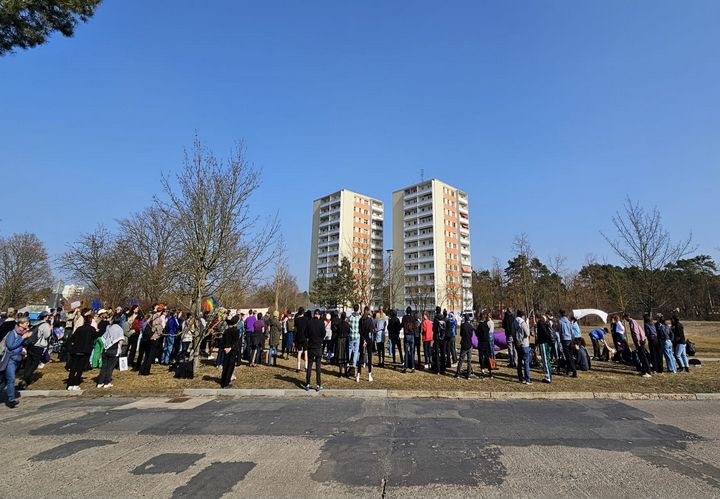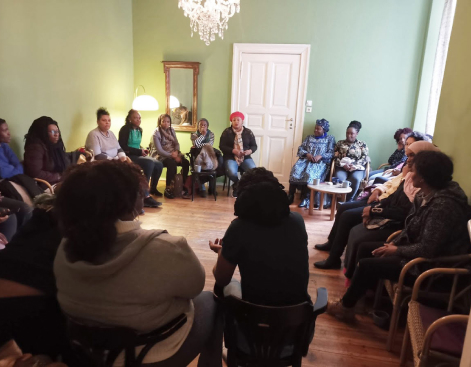
We (Women in Exile and Friends) are among a few groups of organisations and individuals who have come together to plan a public hearing in the framework of the Permanent Peoples´ Tribunal established in Bologna in 1980. *1
Our focus is on health and a framing of the topic of human rights violations from a perspective of health and the health effects. Health is something everybody can relate to.
This alliance is to create a common struggle between refugee organisation and solidarity organisations. The groups and individuals are working with refugee and migrants on professional and/or activism level such as IPNNW, Boderline Europe, Medibüro, Respect, International Women Space and medical doctors. This public hearing will probably take place in early 2020 and will be charged to denounce the discrimination on medical sphere in Germany. In the tribunal we would like to show through testimonies and indictments how health issues in Germany are linked into social and political sphere.
Refugees when entering Germany have to go through the humiliation process of fingerprinting. This process is meant to criminalise them and to sort them into wanted and unwanted refugees. Those who survive deaths in the Mediterranean and are lucky to arrive in Germany; the new laws means they go strait to prison because they broke the Dublin and other laws implemented by the European to stop refugees coming to Europe. The others will be accommodated in lagers or “Ankers”, isolated from the society to wait for their fate. This difficult process results in depressions and traumas.
Generally the whole processes the refugees go through; from the minute they decided to leave their homes up to when they arrive in Germany is traumatising enough. Life in the lagers, police violence, deportation, racism and other incidences are catalysts of re-traumatisation. Unfortunately also the health system is often contributing to this; many women complain that they do not receive proper advice of treatment possibilities before operations. These traumas are leading to depression and suicides of the refugees.
Through discussion and workshop sessions in our health project, many women believe they did not have health problems before but after arriving in Germany. Some of the women have undergone many minor operations which keep on recurring and are afraid they could end up having major health problems including reproductive health. This is contributed by the third class health access which requires them to go through a lot of bureaucracy before they can get specialised treatment.
The Peoples Permanent Tribunal (PPT) will be a good opportunity for the allied organisation involved in working with health issues affecting refugees, illegalised persons and migrants to indict the authorities concerned. This tribunal will build up on experience of different hearing on refugee and migrants which have been taking place in the last three years in different European countries.
*1 http://permanentpeoplestribunal.org/lang=en.
